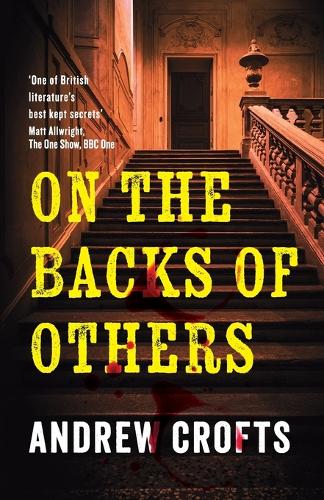To be a published writer you need an endless supply of patience, and the skin of an armadillo. Patience because everything takes an age. It takes an age to write a book in the first place, then you have to wait months for an agent to read it and make comments. Then, if you manage to persuade the agent to represent the book, you have to wait while publishers read it, have meetings about it, and then start negotiations. Even once they have agreed to publish the book, you are still a year to eighteen months away from seeing it on the bookstalls. Then you have to wait for the reading public to hear about it, read it and finally recommend it to their friends and review it. This all takes years.
You need the armadillo’s shell because every one of these stages will also include rejections, criticisms and suggestions on how you could make your book better by re-writing it in the way the agent/publisher would like.
Young authors who can handle all this have decades of career ahead of them, so they can afford to spend the time going through the whole agonising experience every time they write something. I started when I was 17 and my first book was published ten years later. Over the following forty-five years I published well over a hundred titles, but I no longer have the time or the patience to wait that long to see the results of my labours. Fortunately, technology has made self-publishing a viable, and increasingly acceptable, alternative. I am now able to back my books myself and publish them when and how I choose.
There have been a few famous names who have followed the same path in the past. Mark Twain, for instance, self-published an edition of Huckleberry Finn, Beatrix Potter, Virginia Woolf, Edgar Allan Poe and Margaret Atwood all took control of publishing their own books at various stages of their careers, either because they couldn’t get their feet in the doors of the existing publishing companies, or because they realised it would be more profitable for them to cut out the “middle-men” in the publishing process.
Now, however, the process is becoming commonplace. Peter Buckman, a distinguished literary agent and author, now in his eighties, recently explained to BookBrunch, why he had taken the decision to self-publish his latest crime series, “The Pumpernickel Mysteries”.
“At my age,” he writes, “I can’t hang around while the friends I still have in publishing tell me they love my writing but it ‘doesn’t quite fit our current list’”. He goes on to explain, “I have commissioned professionals to do the things I can’t manage, and I think the results match the standards I’ve acquired over sixty years in the business.”
Mark McCrum, another writer with a long list of published titles to his name, came to a similar decision when his long-time, and well-known, agent sat on his manuscript for the first of “The Festival Murders” series, for six months, always promising to “get to it soon”.
“He had other, more lucrative, projects he wanted me to take on,” McCrum explains, “and I realised he was never going to do anything with this novel, so I set up Prospero Press, and did it all myself.”
The book was duly published and was then taken on by traditional publisher, Severn House, who were then taken over by blue chip publisher, Canongate, who have republished the book, and three more in the same series. In the years that it took for this situation to evolve, McCrum received modest but regular payments for sales via outlets such as Amazon. If he had not taken matters into his own hands, however, he would undoubtedly still be waiting for his agent to get moving. He has since changed agents.
“Digitalization has revolutionized writing, reading, printing and distribution,” Buckman writes in BookBrunch, “and made self-publishing a key part of the business. Of course, every writer thinks their latest book is a work of genius, but if conventional editors are too cautious to take a punt on it, self-publishing offers an opportunity to prove them wrong.”
One great advantage to self-publishing is that you do not have to sell that many copies in order to recoup your costs, whereas a large publishing company, with all its overheads, needs to sell far more, inevitably making them more cautious about what books they invest in,
“Few people go into self-publishing to make a profit,” Buckman says. “Writers do it because they believe their work is worth reading. Although no one likes promoting themselves they can, when pushed, do a better job than most marketing departments, and the algorithms on which success depends may be no worse to deal with than indifferent sales reps, (and at least they are not affected by the Curse of Nielsen BookScan);
“So, if the inbuilt editor that Chandler says every writer needs, tells you you’ve produced something quite good, or even not half bad, and if this view is backed up by someone you respect and are not having sex with, then self-publishing is the way to go when editors who are cautious to the point of cowardice turn you down.”
Like Buckman and McCrum, I did try out early drafts of my latest novel, “On the Backs of Others”, on a few agents that I have worked with over the years, and they all responded with polite, and valid, excuses such as, “it falls between several genres, I don’t think publishers would know how to market it,” and “Richard Osman and Richard Coles have pretty much got this sector of the market sewn up”. I could see what they all meant. It does look like a “cosy village crime” book at the start, but it soon develops into something very dark, and possibly even “gothic”. I see it as an allegory for the state of the modern world, and England in particular, as a critique of the traditional class system and of the latest explosion of global wealth inequality – Okay, yes, I can see there is a complex mix of genres here.
But I didn’t want to restrict myself to one genre, and I didn’t want to spend the final decades of my life trying to nag reluctant publishers into giving it a go, so I took it to the excellent people at Whitefox Publishing, a creative, collaborative agency. The book was published within a few months and now all we have to do is wait for “word-of-mouth” to make it the international best seller it deserves to be – so, back to waiting again.


